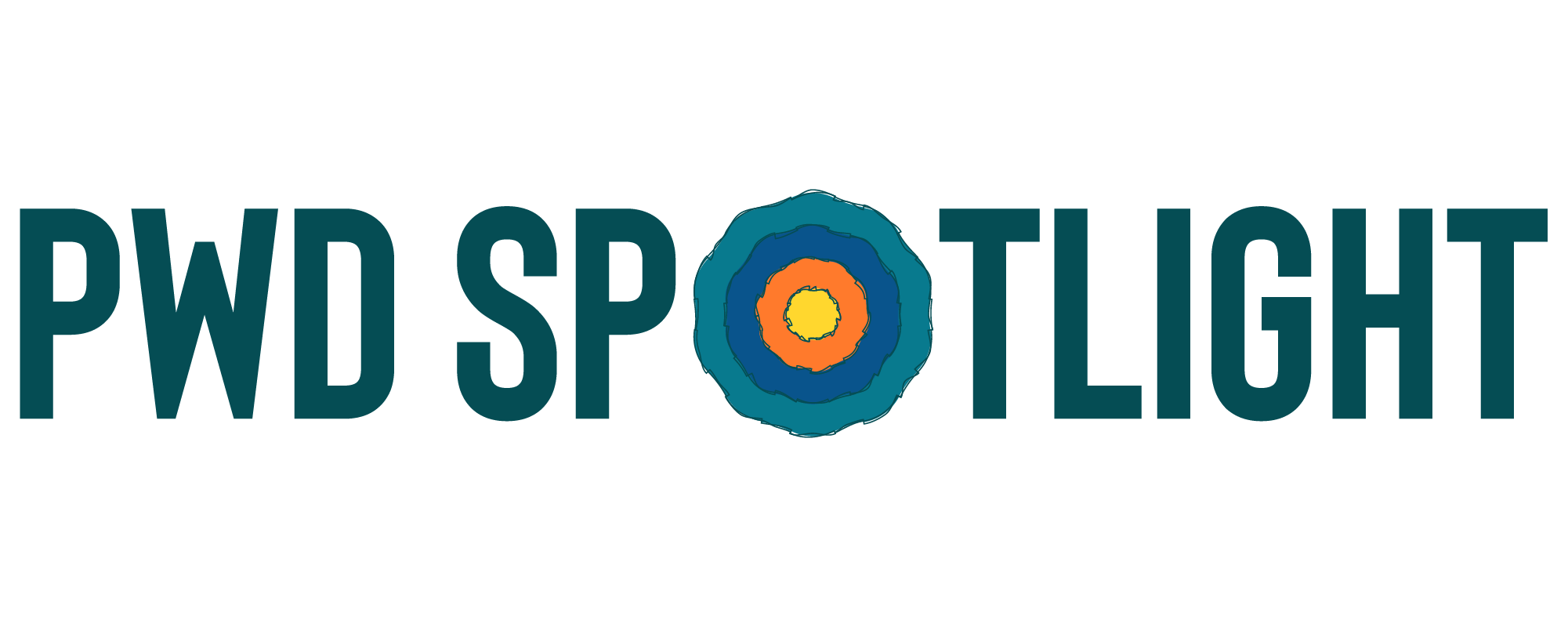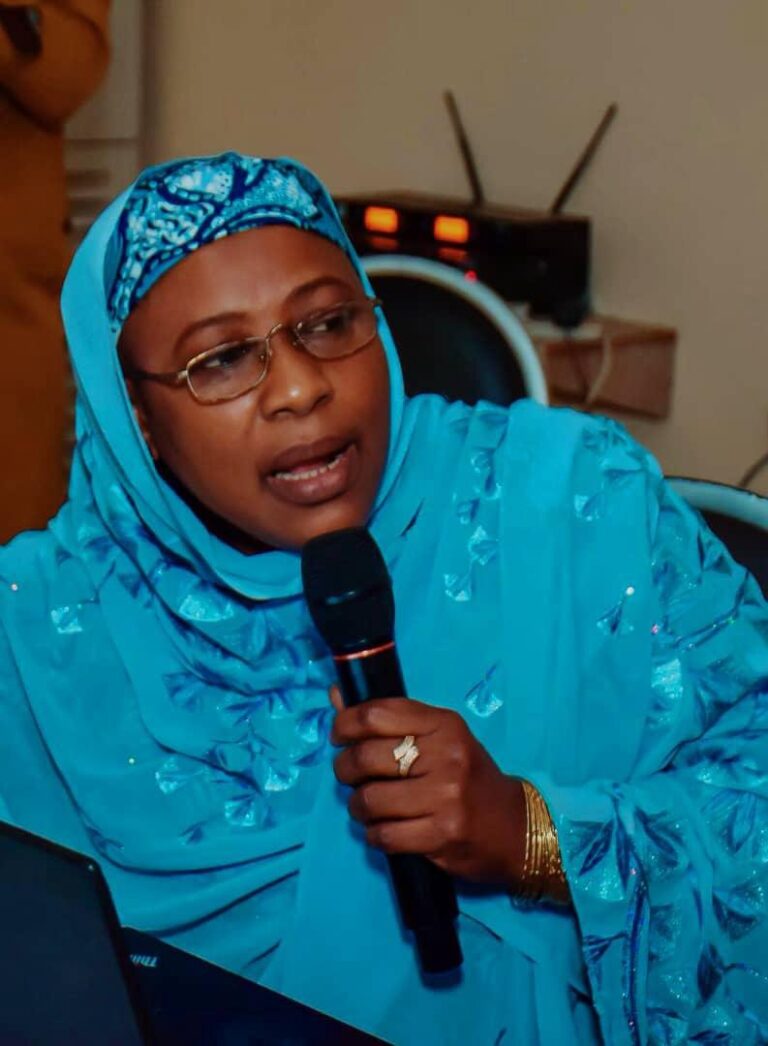Dr. Binta Bala is the Director of the newly created Department of People with Disability under the Kano State Ministry of Women Affairs, Children and Disabled. In an exclusive interview with PWDSpotlight’s Stephen Enoch, she speaks on the state government’s vision and agenda for persons with disabilities. She stresses that the new department will champion free education and inclusive healthcare, among others, for persons with disabilities in the state.
PWD Spotlight: This new department is still fresh. What is the name of the department, and what prospects does it hold for people with disabilities in Kano?
Dr. Binta: The department is called the Department of People with Disability, and it was officially established on the 26th of April, 2025. The idea behind its creation was to provide a dedicated home for all matters concerning people with disabilities in Kano State.
Until now, there was no single unit fully focused on our issues. The department will now serve as that place where welfare, education, health, livelihood, employment, empowerment, and skills acquisition for persons with disabilities (PWDs) will be addressed. The vision is to give people with disabilities a sense of belonging and to ensure that their concerns are not treated as afterthoughts but as priorities within government policy.
PWD Spotlight: Why did the government consider it necessary to create this department now?
Dr. Binta: The Ministry of Women Affairs has always been officially called the Ministry of Women, Children, and Disabled. Within the ministry, there was already a director for women, and another for children, but none specifically for people with disabilities.
That gap was obvious. Under the leadership of Honourable Commissioner Hajiya Amina Abdullahi and the HODs, it was decided that a new department should be created to focus on disability issues directly.
This step was taken because, in the absence of a formal commission or agency dedicated to people with disabilities, there needed to be a structure within government to carry that responsibility. So, the department fills that vacuum.
PWD Spotlight: During the previous administration, there were conversations about establishing a Commission for People with Disabilities. Why has that not yet materialised, and what gaps will this new department fill in the meantime?
Dr. Binta: I am very confident that the Commission will be established soon. From what I have been told, the bill has already passed through the judiciary and is now at the office of the Secretary to the State Government (SSG). Once the SSG gives advice and clearance, it will be sent for final approval by His Excellency, Governor Abba Kabir Yusuf.
But until that happens, this department will play a crucial role. It provides structure, legitimacy, and a platform for advocacy. While the Commission would have a wider legal mandate, the department already begins the work of addressing people’s concerns and coordinating policies.
PWD Spotlight: Looking ahead to the next few years, what specific achievements do you hope this department will deliver?
Dr. Binta: In the area of education, it is already enshrined in state law that education for people with disabilities is free in Kano. Our hope is to see more people with disabilities, children, and adults alike enroll in school, graduate, and pursue higher education. In the next few years, we want to see a sharp increase in literacy among PWDs, with more graduates entering the workforce.
On healthcare, we already have the Kano State Contributory Healthcare Management Agency (KSCHMA), which provides essential health services and care kits for people with disabilities. We will strengthen this partnership so that no one is left behind in healthcare access.
When it comes to employment and empowerment, I have already submitted a memo to His Excellency requesting the empowerment of 3,000 people with disabilities, youth, older persons, and especially adolescent girls. The vision is that within three years, we will have a stronger community of PWDs who are literate, self-reliant, and actively contributing to the economic growth of the state.
PWD Spotlight: What about those who are often the most visible people with disabilities who beg on the streets or depend on alms? What message do you have for them now that there is a department dedicated to their issues?
Dr. Binta: My message to them is very simple: our doors are open. This department is for you. Come forward, bring your complaints, and let us know your needs. Is your need education? Then we will work on how to enrol you. Is it employment? We will look for opportunities. Is it empowerment or skills acquisition? We will include you in our programs. But first, you must take that step of coming to us, so we can properly assess and assist you.
Street begging is not the only option. The department is determined to gradually integrate such individuals into productive programs so they can stand on their feet again in society.
PWD Spotlight: Beyond government interventions, what message would you like to send to the larger disability community in Kano?
Dr. Binta: My strongest message is about unity. Let us unite as people with disabilities. Let us speak with one voice, not through protests but through advocacy.
We already have six recognised clusters of disability in Kano. Let us strengthen these clusters and present a united front. Together, we can promote our social welfare, showcase our talents, and push for our rights constructively.
We must also begin to shift society’s perception of us. People should not see us only as dependents or as burdens. We have capacity, strength, and potential. We have educated people among us, we have skilled and talented individuals, and we can make powerful contributions to society if given the chance.
Let us come together, build ourselves, and prove to society that people with disabilities are not to be pitied but respected as valuable members of the community.
PWD Spotlight: Any final words for policymakers and the general public?
Dr. Binta: To policymakers, I say: continue to prioritise disability issues. The establishment of this department is a welcome step, but it must be matched with funding, programs, and practical action. To the public, I ask for understanding, inclusion, and support. Disability is not inability, and with the right environment, people with disabilities can thrive and make Kano State proud.

